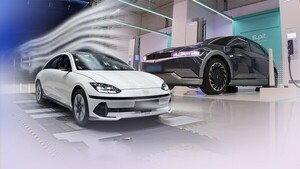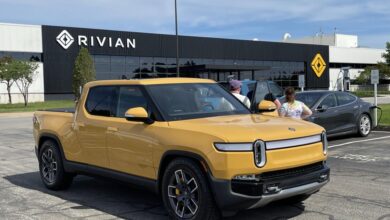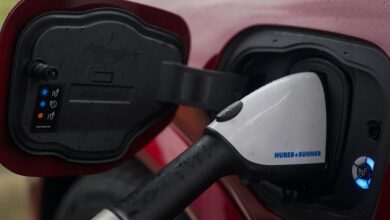Navigating the Bumps in the Road


Summary: Electric vehicle (EV) ownership certainly has its ups and downs. While EV enthusiasts frequently share their positive experiences, it’s the airing of grievances—like charging station faults and vehicle malfunctions—that often gain the most attention. This focus on the negative can paint an incomplete picture for potential EV owners. The challenge for the EV community lies in highlighting issues constructively without overshadowing the many benefits of driving electric.
Owning an electric vehicle is akin to any significant relationship: it’s not without its challenges, but the true test is in how well we handle the intricacies of our commitment. EV lovers frequently celebrate their vehicles, but like any good relationship, it’s crucial to deal with the occasional disagreements and inconveniences in conducive ways.
Social media and news outlets often highlight the teething problems faced by EV owners, constructing an image that may deter potential adopters. The narratives usually focus on the issues EV drivers encounter, such as broken charging stations or vehicle malfunctions, rather than the overall positive experience of EV ownership. As the sustainability movement grows, the expression of critique must be balanced. While discussing faults, it’s beneficial to emphasize the joys and advantages of owning an EV to counteract the negativity, providing a fuller perspective for those considering making the switch.
Imagine a tweet criticizing a malfunctioning charging station but also affirming the overall satisfaction with e-mobility and its future promise. Encouraging a nuanced dialogue around EVs could make a significant difference in public perception. It’s about presenting informed views that acknowledge challenges while championing the green technology that EVs represent. This approach will foster a more constructive public discourse around electric vehicles, encouraging adaptation while driving industry improvements.
Electric Vehicle Industry Overview
The electric vehicle (EV) industry is witnessing unprecedented growth, driven by advancements in battery technology, increasing environmental awareness, and supportive government policies around the world. EVs, once considered niche, are now becoming mainstream, with traditional automakers and new entrants expanding their electric offerings. A testament to this shift is the rising global sales of EVs, which have been steadily increasing year on year.
Market Forecasts for EV Industry
Analysts project a compound annual growth rate (CAGR) in the EV market that underscores a bright future. By the end of the decade, some forecasts anticipate millions of EVs on the roads, indicating a significant shift in consumer behavior and automotive industry offerings. This growth is also fueled by the declining costs of batteries and the increasing number of EV models available to consumers, providing a wider range of choices.
Issues and Challenges in the EV Sector
Despite the optimism, there are issues that the EV industry must address. The adequacy and reliability of charging infrastructure remain at the forefront of concerns. Expanding this infrastructure is critical to support the growing number of EVs, and efforts are ongoing globally to improve the coverage and quality of charging stations.
Battery technology and resource acquisition also present challenges. The industry is continuously innovating to enhance battery life, energy density, and reduce charging times. Moreover, sourcing materials for batteries, such as lithium and cobalt, raises concerns about sustainability and ethical practices.
The environmental impact of EVs is a complex subject as well. While EVs offer zero emissions at the tailpipe, the overall environmental footprint depends on how the electricity is generated. Encouraging the shift towards renewable energy sources is essential for maximizing the environmental benefits of electric vehicles.
Additionally, the economic impact of transitioning to EVs includes job shifts within the automotive industry, with new skills in demand to support the growth of electric mobility.
Despite these challenges, the industry is forging ahead, with constant innovation and a focus on sustainability leading the charge.
Exploring the Potential of Electric Vehicles
As the industry evolves, stakeholders are working to tackle the shortcomings and capitalize on the many advantages of electric vehicles. As consumers become more familiar with EV technology and share their experiences, the narrative around electric mobility continues to improve.
Ultimately, the industry’s success hinges on its capacity to create vehicles that meet consumer needs and on establishing trust regarding the long-term benefits and reliability of electric transportation. By addressing issues openly while also celebrating the positive aspects of EV ownership, the industry can ensure a more sustainable and environmentally friendly future for mobility. For those interested in the latest news and developments in electric vehicles, reputable sources like Tesla and the International Energy Agency are valuable for insights and data reflecting the dynamic nature of the EV market.

Michał Rogucki is a pioneering figure in the field of renewable energy, particularly known for his work on solar power innovations. His research and development efforts have significantly advanced solar panel efficiency and sustainability. Rogucki’s commitment to green energy solutions is also evident in his advocacy for integrating renewable sources into national power grids. His groundbreaking work not only contributes to the scientific community but also plays a crucial role in promoting environmental sustainability and energy independence. Rogucki’s influence extends beyond academia, impacting industry practices and public policy regarding renewable energy.



